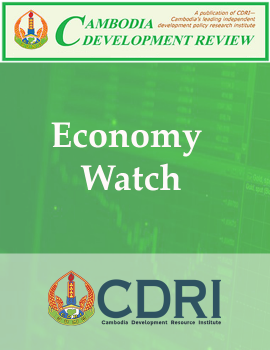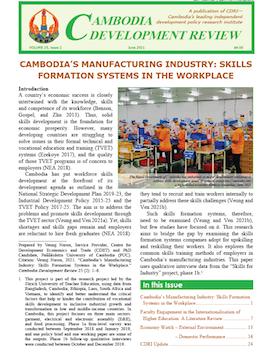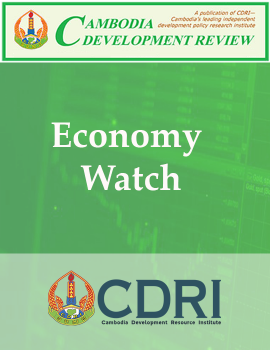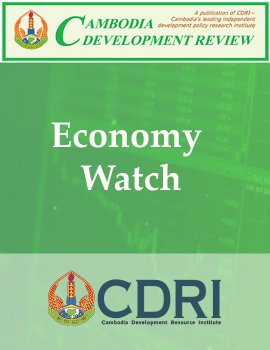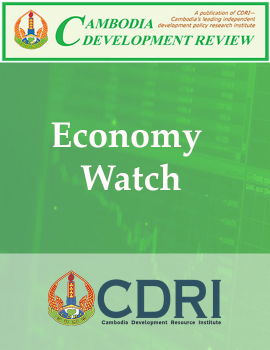Centre for Development Economics and Trade
The Centre for Development Economics and Trade (CDET) conducts applied and policy researches focusing on Cambodia’s economy, trade and regional cooperation. We monitor Cambodia’s economic management and performance; provide evidence-based economic policy analysis; and engage in local and regional dialogues to inform policymaking. Our research has a strong link to national policies, particularly the Rectangular Strategy (Phase IV) and the National Strategic Development Plan (2019-23). Specifically, we contribute to two pillars of the NSDP: Economic Diversification, Private Sector and Market Development; and Sustainable and Inclusive Development. Our delivery mechanism includes policy and academic research, capacity building, knowledge dissemination and sharing, and policy influence and outreach. Our research agenda falls within five broad development areas: economic development, focusing on sustainability and inclusion; trade and regional cooperation; private sector development, focusing on small and medium enterprises; employment and employability, with a cross-cutting theme on gender and youth; and data for research and development (D4RD). We have extensive experience on regional cooperation and research projects, working with think tanks and research institutes in ASEAN and the Mekong region. The Greater Mekong Subregion Research Network (GMS-Net) is an example of such collaboration.
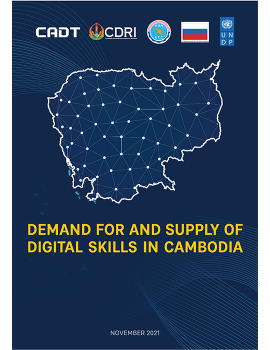
Demand for and Supply of Digital Skills in Cambodia
The study assesses current and future demand for and supply of digital and ICT skills and investigates the challenges firms of all sizes, universities, and TVET institutions face in preparing themselves and their students for digital technology adoption under the framework of the Fourth Industrial Revolution (4IR). A mixed-methods approach of quantitative and qualitative analyses is used. The quan...
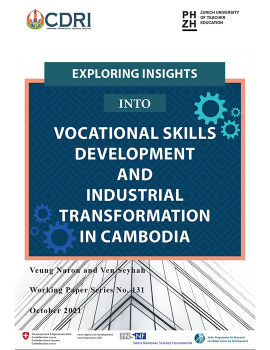
Exploring Insights into Vocational Skills Development and Industrial Transformation in Cambodia
Industrial development is central to Cambodia’s economic development as it plans to upgrade the country’s status to an upper-middle-income country by 2030 and to a high-income country by 2050. Equipping the workforce with the skills and competencies that match industrial needs requires a great deal of continuous efforts and resources. In this regard, this paper aims to look into the linkage betwee...
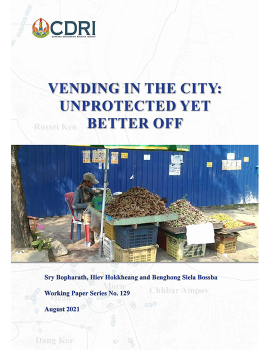
Vending in the City: Unprotected Yet Better Off
Street food vending is a vital part of the urban economy, and the poor, in particular, rely on it to earn their living. We examine their socio-economic dimension, especially their backgrounds and business operations and challenges, as well as the perspectives on life satisfaction among different income earners. Importantly, we looked at the marginalisation and vulnerability of street vendors in Ph...
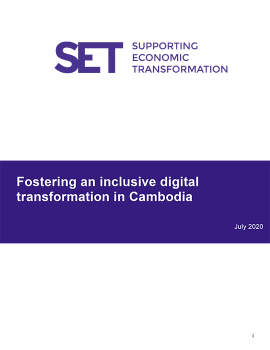
Fostering an Inclusive Digital Transformation in Cambodia
Digitalisation in Cambodia is rapidly taking place but has had different results and provided varying opportunities across varying economic sectors. While digitalisation assists in advancing economic and social terms in Cambodia, public and private sectors, as well as different economic classes are receiving unequal benefits from improvements in digital technology. For example, evidence gathered t...











